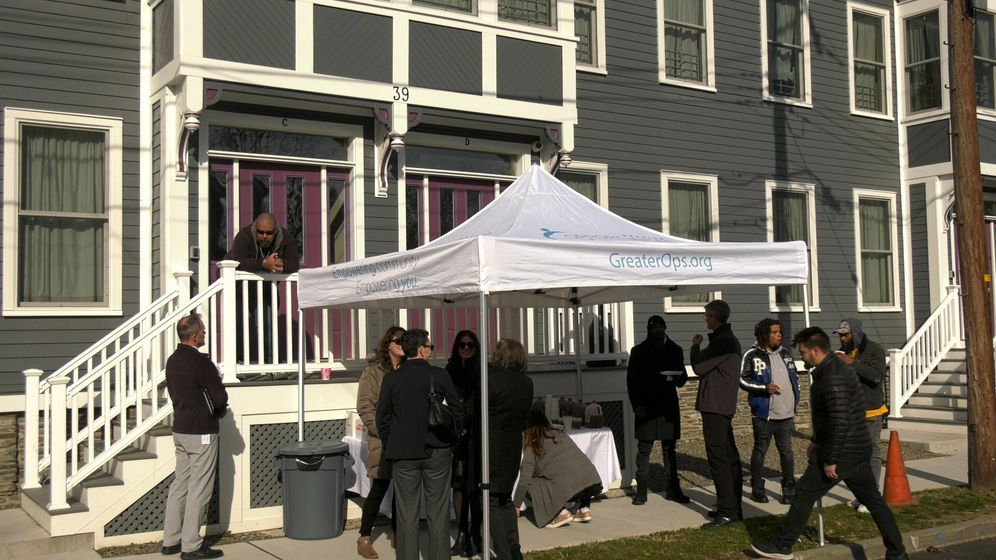The Ultimate Guide to Buying a House at Auction buying a home is one of the biggest decisions you’ll make in your lifetime. The process can often seem overwhelming, especially when you’re navigating traditional methods of purchasing real estate. But did you know that there’s another way to buy a house that could save you money and potentially land you your dream home? Buying a house at auction is a route that more and more homebuyers are exploring—and for good reason!
In this guide, we’ll break down the ins and outs of buying a house at auction, from understanding how the process works to preparing yourself for success. Whether you’re an experienced investor or a first-time homebuyer, this guide will provide you with all the information you need to confidently enter the auction world.
What is a House Auction?
At its core, a house auction is a public sale in which properties are sold to the highest bidder. Unlike traditional home buying, where a buyer makes an offer that is negotiated with the seller, an auction is a fast-paced event where properties are sold to the highest bidder at that moment.
Properties up for auction can come from a variety of sources. Foreclosures, bank-owned properties, estate sales, and government auctions are some of the most common types of house auctions. These auctions often feature homes that are priced below market value, making them an attractive option for savvy buyers.
)
Why Consider Buying a House at Auction?
Before diving into the details, it’s important to understand why buying a house at auction might be the right choice for you. The biggest draw to buying a house at auction is the potential for great deals. Properties that are auctioned off often sell for less than their market value, especially if they’re foreclosures or distressed properties.
Here are some of the key benefits to buying a house at auction:
- Lower Prices: Auctions can offer significant discounts on properties, especially those that are distressed or foreclosed.
- No Negotiations: The bidding process is straightforward, so you don’t have to deal with lengthy negotiations.
- Unique Properties: Auctioned homes can offer unique or hard-to-find properties that aren’t typically available through traditional real estate channels.
But, as with any purchase, there are also risks involved. It’s crucial to understand the auction process thoroughly and prepare properly to avoid pitfalls.
How Does the House Auction Process Work?
The process of buying a house at auction may seem intimidating at first, but it’s quite simple once you break it down. Here’s a step-by-step guide to help you understand how the auction process works.
1. Research and Find Auctions
The first step in buying a house at auction is finding the right auction. There are several ways to locate property auctions:
- Online auction platforms: Websites like Auction.com, Hubzu, and Bid4Assets host auctions for various types of properties across the country.
- Local auction houses: Many local auctioneers host property auctions in specific regions. Check with auction houses in your area to find out when the next auction is scheduled.
- Government or bank auctions: Some foreclosures and government-owned properties are sold through government agencies or banks.
Once you find an auction that interests you, it’s time to research the properties up for bid.
2. Research the Properties
Unlike traditional home buying, where you may have the opportunity to inspect a property multiple times, buying a house at auction requires you to do your due diligence upfront. Most auctioned properties are sold “as-is,” meaning there may be no opportunity for repairs or refunds if issues are discovered after the sale.
Here’s what to consider when researching auction properties:
- Visit the property: If possible, schedule a visit to inspect the property before the auction. This will allow you to assess the condition of the home and determine any necessary repairs.
- Review auction details: The auction house or website will provide important details about the property, including starting bids, auction date, and auction rules. Make sure to read this information carefully.
- Check the title: Verify the title to ensure there are no legal issues with the property, such as unpaid taxes or liens.
- Estimate costs: Don’t forget to factor in additional costs such as taxes, repairs, and closing fees.
3. Set Your Budget
One of the biggest mistakes buyers make when buying a house at auction is getting caught up in the excitement of bidding and overbidding. Setting a firm budget before the auction is critical to ensure that you don’t exceed your financial limits.
When setting your budget, consider:
- Auction fees: Auctions typically charge a buyer’s premium, which is an additional percentage on top of the winning bid. Be sure to factor this into your budget.
- Renovation costs: If you’re bidding on a distressed property, consider the cost of repairs and renovations.
- Property taxes: Make sure you know whether the property has any outstanding tax liabilities that could fall on you as the new owner.
4. Register to Bid
Before you can participate in a house auction, you’ll need to register with the auction house or online platform. This often requires providing personal information, proof of funds, and sometimes a deposit to ensure you are serious about bidding.
Once you’ve registered, you’ll receive a bidder number that will be used during the auction to identify you. If you’re participating in an in-person auction, you’ll receive a paddle with your number, which you’ll raise to place bids. If you’re participating online, you’ll be able to place bids through the auction website.
5. Attend the Auction
On the day of the auction, it’s time to put your research and preparations into action. Make sure to arrive early and familiarize yourself with the auction environment.
Here’s what to expect during the auction:
- Auctioneer’s role: The auctioneer will begin the auction by introducing the property and starting the bidding at a set price. They will then manage the bidding process, calling for higher bids until no one is willing to offer more.
- Bidding process: Bidders will raise their paddles (or click the bid button online) to place higher offers. The auctioneer will continue to call for bids until the highest bidder is reached.
- Winning bid: The auction ends when the highest bid is called, and the winning bidder will be required to sign a contract and pay a deposit to secure the purchase.
6. Close the Deal
If you win the bid, the next step is closing the deal. At this point, you’ll need to finalize your financing (if you haven’t already) and make any required payments.
Here’s what you’ll need to do:
- Pay the deposit: Most auctions require a deposit immediately after winning the bid. This is typically a percentage of the winning bid amount.
- Final payment: You will usually be required to pay the remaining balance within a short period, typically within 30 days.
- Sign paperwork: The contract and other necessary legal documents will need to be signed to finalize the transaction.
Tips for Success When Buying a House at Auction
Now that you know the basic steps of buying a house at auction, here are some tips to help you succeed in this competitive environment:
- Be prepared to act quickly: Auctions are fast-paced, so it’s important to make decisions quickly. Don’t hesitate to place your bid if the property is right for you.
- Understand the terms and conditions: Be sure to read and understand the auction house’s terms and conditions before you bid. This includes the buyer’s premium, deposit requirements, and closing timeline.
- Inspect the property beforehand: If possible, make sure you visit the property to assess its condition. It’s important to know what you’re getting into before you make a commitment.
- Stick to your budget: Auctions can be thrilling, but it’s important to stick to the budget you’ve set for yourself. Don’t get carried away by the excitement of the bidding.
- Have financing lined up: Most auctions require immediate payment or a quick closing. Be sure you have your financing in order before you bid.
Buying a house at auction can be an exciting and rewarding experience, but it’s important to approach it with caution and preparation. With the right research, budgeting, and understanding of the process, you could walk away with a fantastic deal on your next home. Whether you’re looking for a foreclosure, a unique property, or simply a good bargain, an auction may be the perfect way to secure your next home.
So, if you’re ready to jump into the world of buying a house at auction, remember to follow the steps outlined above, stay informed, and always bid wisely!






